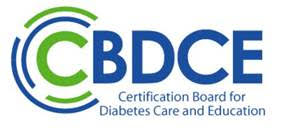Why I Became a CDCES
CDCES Stories

Lynda McKendree
MSN/Ed, RN, CDCES®
Proud CDCES since August 2016
Lynda McKendree’s Journey to CDCES Certification
I became interested in helping people with diabetes while working as a staff nurse on a cardiac stepdown unit. Before that, I worked at a Veterans Affairs Medical Center, and I noticed the toll diabetes took on our veterans.
As I was studying for my master's degree while working on cardiac stepdown, it frustrated me that I was told to push patients out for discharge with a new diabetes diagnosis and orders for insulin when the patients weren't allowed time to check their blood glucose or administer their insulin. People with diabetes were discharged without demonstrating knowledge of diabetes self-care. During this time, at least three people in my family were diagnosed with diabetes, so when given the chance to select my subject for an assignment, I chose diabetes.
A community-based hospital posted a position for a certified diabetes educator about a month before my graduation. I landed the job and was so excited! In the back of my mind, I thought, maybe one of these days the VA hospital will need someone to do this kind of work. In reality, I never wanted to leave the VA, and helping veterans was always true to my heart.
I jumped right in and learned as much as I could in a short year working as a diabetes educator. I was then asked to teach at the nursing school and assured that I would be able to prepare future nurses in diabetes management. I spent about three years educating nursing students about diabetes, kidney disease, and cancer. Although I enjoyed this job, I didn't love it. Educating patients and their families was my absolute passion.
Here is where it gets incredible. My mother also works at the VA, and one morning she called me and said, "I just left a meeting, and the director said they're hiring a diabetes educator". I immediately called the nursing school to let them know I would be running late and applied for the VA job, which was a perfect fit. They offered me the position, and I accepted!
What or Who Motivated You to Become a CDCES?
I want to share my journey to inspire other health professionals to pursue the Certified Diabetes Care and Education Specialist (CDCES) certification, as it highlights the meaningful impact of this specialty. Working with veterans, supporting diabetes care, and advocating for their well-being makes me feel proud and motivated to inspire others to pursue the CDCES, knowing their work can truly make a difference in patients' lives. If you love what you do, you will never work a day in your life!
Has Holding the CDCES Credential Provided You with Additional Professional Opportunities?
Holding the CDCES credential has given me a sense of pride and purpose, opening doors to many career opportunities. It has strengthened my confidence and inspired me to keep advancing. I have also received a HERO and an ICARE Award from the VA Medical Center for exemplary services in diabetes patient care.
What Would You Say to Someone Who is Considering Becoming a CDCES?
While earning the CDCES requires dedication and study, the long-term rewards and ability to improve patient health outcomes make it worthwhile. The CDCES can enhance your confidence and expertise, leading to more impactful patient care. Being a CDCES is beyond rewarding. I never thought anything could surpass nursing, but earning the CDCES certification makes each day meaningful and reminds me that my work truly matters.
Share an Achievement or Special Moment You’ve had as a CDCES
It’s inspiring when I can help a person with type 1 diabetes use technology and see it change their life. Recently, I had a veteran call me in tears, explaining how I saved his life and helped him find a purpose in his life again because I encouraged him to give an insulin pump a try, and he felt so much better.
If you want to be featured in a future CDCES Story, please contact marketing.
